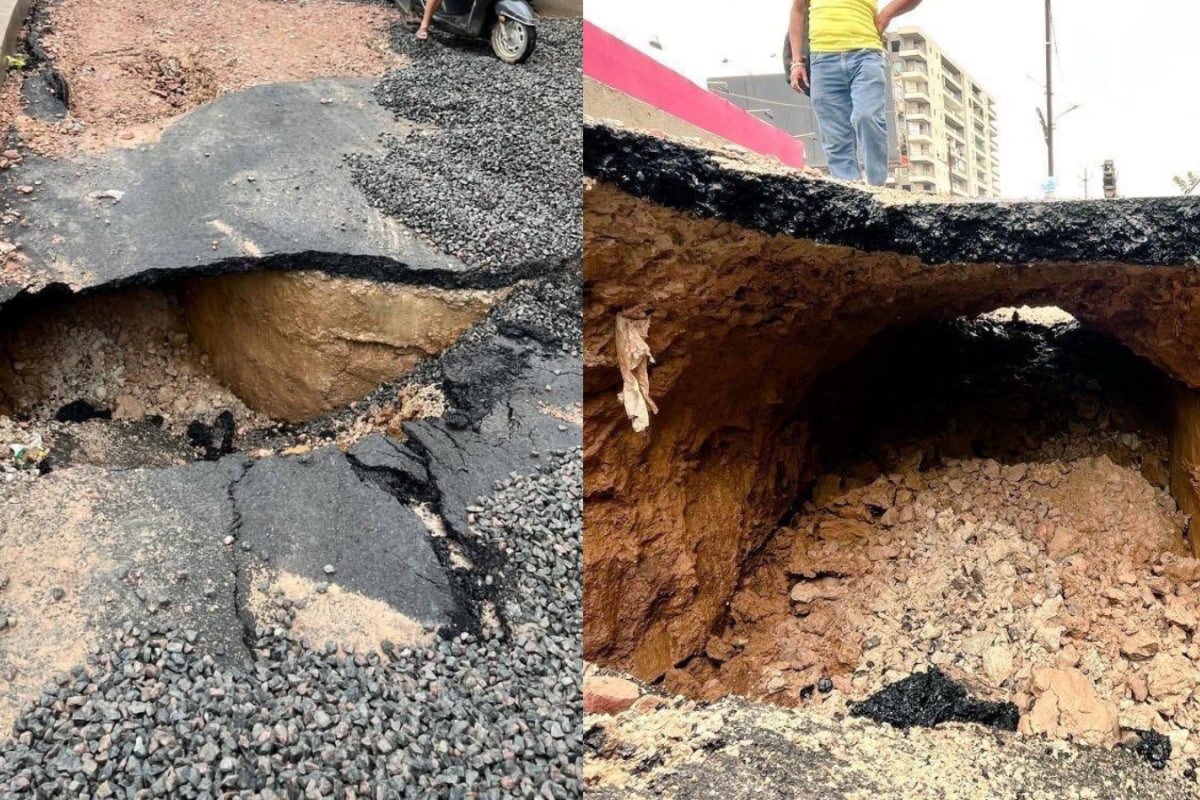

A newly constructed road in Gwalior, Madhya Pradesh, named 'Mahal Road,' has become a symbol of poor construction and alleged corruption after collapsing multiple times in a short period. Inaugurated just a month ago, the road has already caved in at least seven times in the past two weeks, with some reports claiming it has collapsed ten times in the last ten days. The repeated collapses have resulted in deep potholes and cracks, raising serious questions about the quality of materials and workmanship.
The Mahal Road, which connects Madhav Nagar to Chetakpuri, is part of a larger ₹19 crore water drain project, with ₹4.3 crore specifically allocated for its construction. The road's proximity to Union Minister Jyotiraditya Scindia's palace has added to the public scrutiny. What was intended as a sign of development has quickly become a source of public anger and mockery.
Residents report that the road collapses at multiple points with even brief spells of rain, forming massive potholes and creating hazardous conditions for vehicles. Heavy vehicles have reportedly sunk into the road surface, with one incident involving a dumper truck loaded with ballast getting trapped, causing a significant traffic jam. Locals describe the road as behaving like "quicksand," highlighting the severity of the issue.
The situation has sparked outrage among residents, who allege negligence and corner-cutting during the road's construction. Social media is flooded with sarcastic comments and concerns about corruption and poor infrastructure quality. Some users have humorously attributed the collapses to "missile attacks" or mocked the "space technology" used in the construction. Others have expressed concern that the same contractors will be rehired without any accountability.
In response to mounting public pressure, Gwalior Collector Ruchika Singh Chauhan has formed a two-member inquiry committee to investigate the repeated collapses. The committee has been given five days to submit its report, focusing on technical approvals, material quality, soil filling, sewer line laying, and the accountability of the contractor and oversight mechanisms. The investigation aims to determine the root causes of the structural failures and identify any responsible parties.
Meanwhile, the Municipal Corporation has initiated some action, including withholding payments to sewer contractors until they improve their manpower and machinery. The commissioner also mentioned addressing the lack of a proper drainage system in the city's future infrastructure projects.
Road cave-ins are often caused by heavy rainfall, which can lead to overflowing drains and leaks in pipelines. When water from these leaks erodes the surrounding earth, it creates cavities that can eventually cause the road surface to collapse. Preventing such incidents requires regular checks on the integrity of pipelines and the implementation of systems that can detect and plug leaks early on.